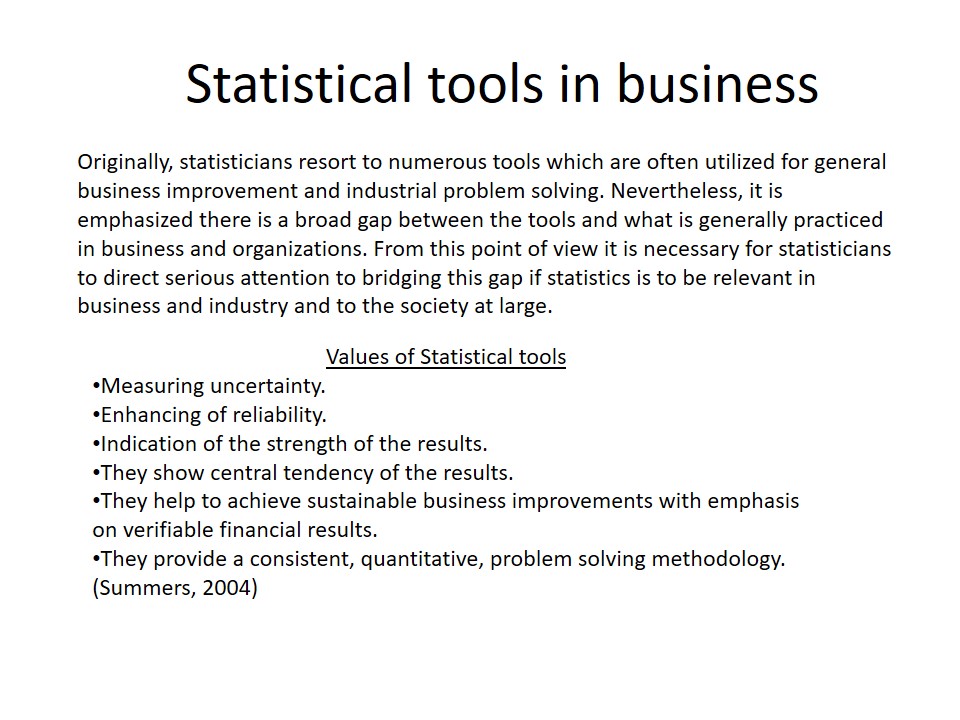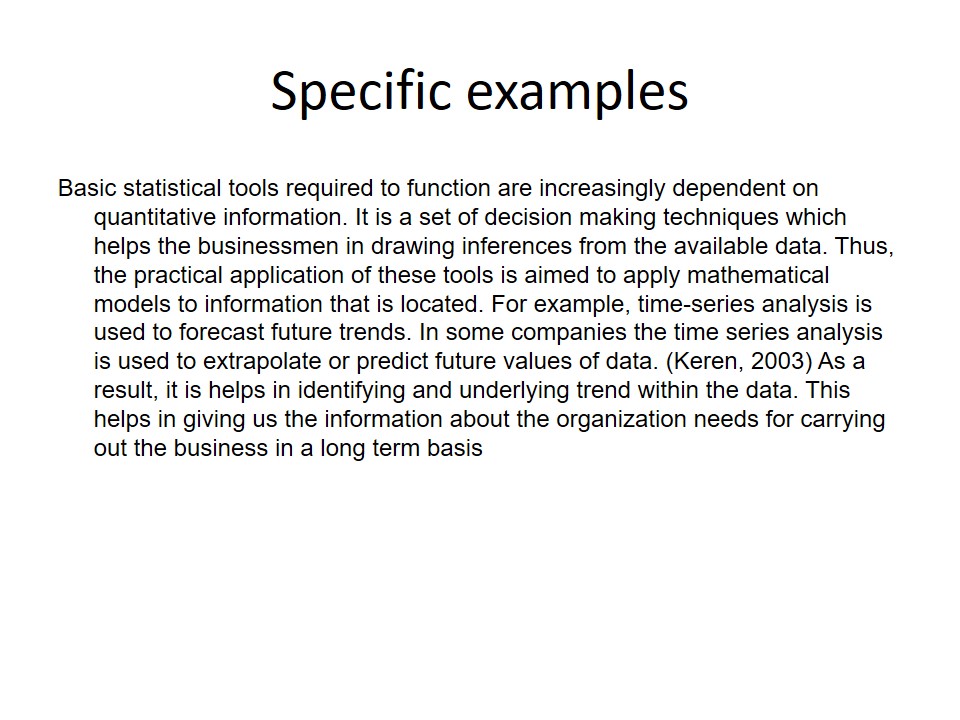Originally, statisticians resort to numerous tools which are often utilized for general business improvement and industrial problem solving. Nevertheless, it is emphasized there is a broad gap between the tools and what is generally practiced in business and organizations. From this point of view it is necessary for statisticians to direct serious attention to bridging this gap if statistics is to be relevant in business and industry and to the society at large.
Values of Statistical tools:
- Measuring uncertainty.
- Enhancing of reliability.
- Indication of the strength of the results.
- They show central tendency of the results.
- They help to achieve sustainable business improvements with emphasis on verifiable financial results.
- They provide a consistent, quantitative, problem solving methodology. (Summers, 2004).

Specific examples
Basic statistical tools required to function are increasingly dependent on quantitative information. It is a set of decision making techniques which helps the businessmen in drawing inferences from the available data. Thus, the practical application of these tools is aimed to apply mathematical models to information that is located. For example, time-series analysis is used to forecast future trends. In some companies the time series analysis is used to extrapolate or predict future values of data. (Keren, 2003) As a result, it is helps in identifying and underlying trend within the data. This helps in giving us the information about the organization needs for carrying out the business in a long term basis.

Research Questions
- Statistics of the transactions.
- Practical necessity of the new card.
- Statistical analysis of the financial situation.
- Bankruptcy Statistics and the main reasons of bankruptcy.
- Statistical analysis of other banking services.
- Budget outlook.
- Statistical analysis of revenues by source.
- Statistical analysis of differences in accounting for major transactions.

References
Keren, Gideon, and Charles Lewis, eds. A Handbook for Data Analysis in the Behavioral Sciences: Statistical Issues. Hillsdale, NJ: Lawrence Erlbaum Associates, 2003.
Summers, Michael R. Analyzing Operations in Business: Issues, Tools, and Techniques. Westport, CT: Quorum Books, 2004.